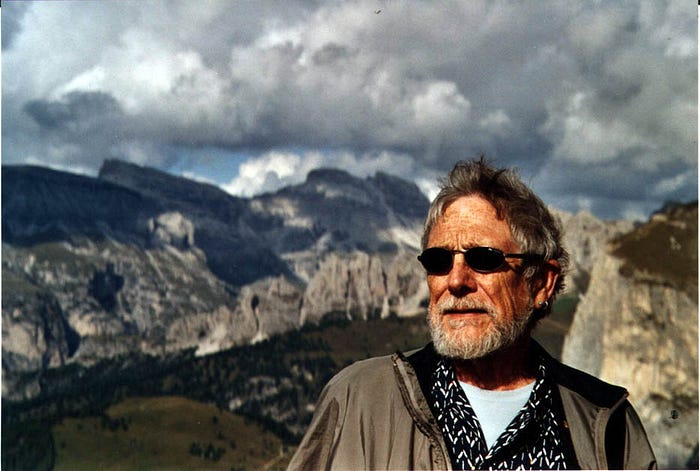Biography of Gary Snyder

As one of the most famous American poets, Gary Snyder has been linked to the Beat Movement, the Black Mountain Poets and the San Francisco Renaissance. As a lover of nature and Zen Buddhism, Snyder focuses his works around those themes, and dedicates much of his life to environmental activism.
Gary Sherman Snyder was born on May 8, 1930 in San Francisco, California. He grew up on small farms in Washington state and Oregon. At an early age, Snyder became obsessed with nature and angered by the destruction of the Pacific Northwestern forests.
He also became aware of the presence of Coast Salish people and developed an interest in American Native peoples and their traditional relationship with nature.
When he was seven, Snyder burned his feet badly while burning brush and couldn’t walk for four months. While laid up at home, his parents brought him books from the Seattle Public Library and as he recalled in an interview with Al Aronowitz, “it was then I really learned to read and from that time on was voracious — I figure that accident changed my life. At the end of four months, I had read more than most kids do by the time they’re 18. And I didn’t stop.”
In 1942, after his parents divorced, Snyder moved to Portland, Oregon with his mother and his younger sister, Anthea. In 1947, he started attending Reed College on a scholarship and met Philip Whalen and Lew Welch.
Snyder published his first poems in a student journal while attending school. He graduated with a dual degree in anthropology and literature in 1951, and attended Indiana University with a graduate fellowship to study anthropology.
In 1950, Snyder married Alison Gass, but they separated after seven months and divorced in 1953.
In the summers of 1952 and 1953, Snyder worked as a fire lookout in the North Cascades in Washington.
He decided not to return as a graduate student of anthropology, instead enrolling in the Asian culture and languages program at the University of California, Berkeley in 1953.
On October 7, 1955, Snyder participated in the Six Gallery poetry reading in San Francisco, making him famous in the literary scene.
That same year, the First Zen Institute of America offered him a scholarship to study Zen Buddhism in Japan. Snyder spent one year studying, researching and translating Zen texts. Then he traveled throughout Asia for six months and met the Dalai Lama.
He remained overseas until 1958, when he returned to California. But, Snyder would inevitably go back to his studies in Japan; he rented a cottage outside Kyoto in 1959.
On his trip back to the states, he had met and fallen in love with Joanne Kyger, a fellow poet. The couple married on February 29, 1960, after she arrived in Japan to meet Snyder.
Between 1956 and 1959, Snyder would split his time between California and Japan. He continued to study Buddhism, at the same time writing and publishing many poems.
While he seemed to be on the path to spiritual enlightenment, and was successful in his career, his married life was falling apart. Snyder and Kyger divorced in 1965.
In 1966, Snyder, Allen Ginsberg and two friends went in on a piece of property in the Sierra foothills. In 1970, Snyder moved there permanently.
While back in Japan during the summer of 1967, Snyder met and married Masa Uehara. Together, they had two sons, who were raised in the Sierra Nevada Mountains of Northern California, in a house built on the land Snyder had recently purchased.
In 1986, Snyder bean teaching writing at the University of California, Davis.
After 22 years of marriage, Snyder and Uehara divorced in 1989. Shortly afterward, Snyder married Carole Lynn Koda; they remained married until her death in 2006.
Snyder has been awarded many great honours, including the American Poetry Society Shelley Memorial Award, the American Academy of Arts and Letters award, the Bollingen Prize, a Guggenheim Foundation fellowship, the Bess Hokin Prize, and the Robert Kirsch Lifetime Achievement Award from the Los Angeles Times.
[The following are affiliate links, which means I may receive commissions if you purchase through them.]
His works include Riprap and Cold Mountain Poems, No Nature, The Practice of the Wild, Left Out in the Rain, Axe Handles, Turtle Island, Regarding Wave, and Myths and Texts.
